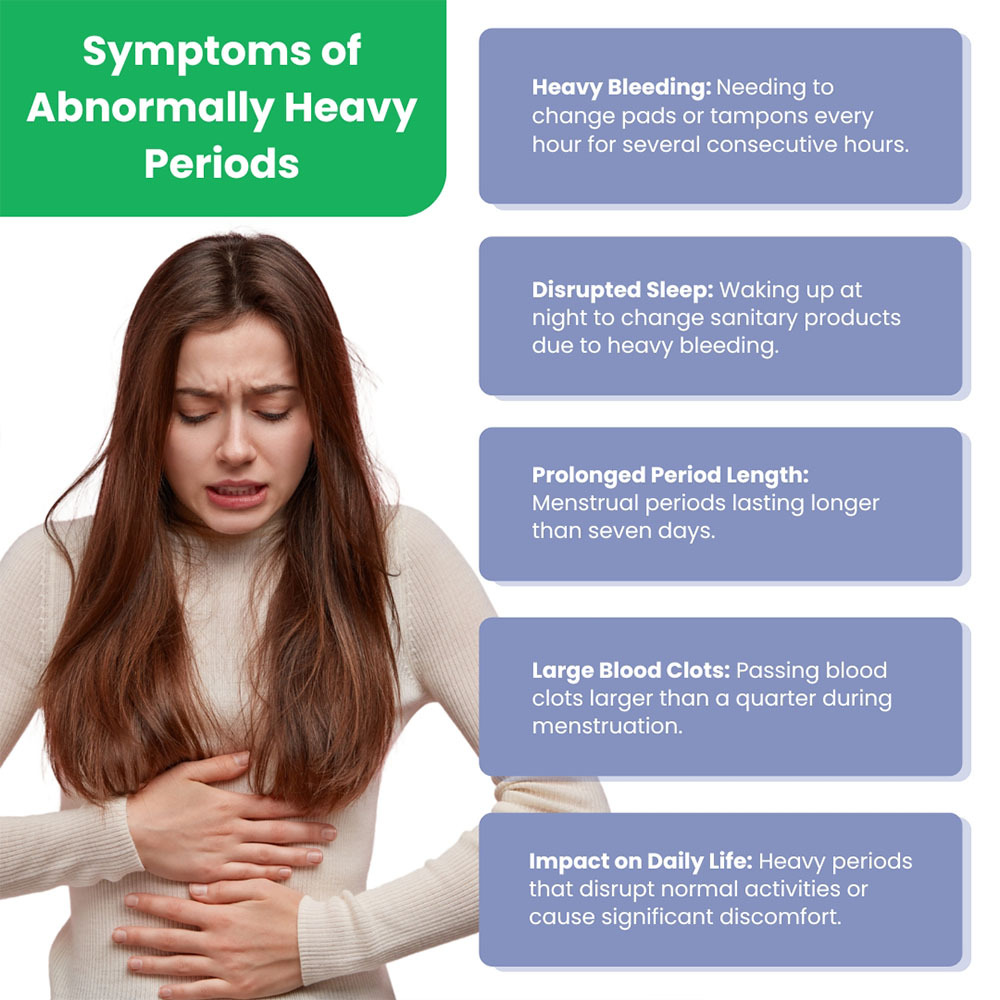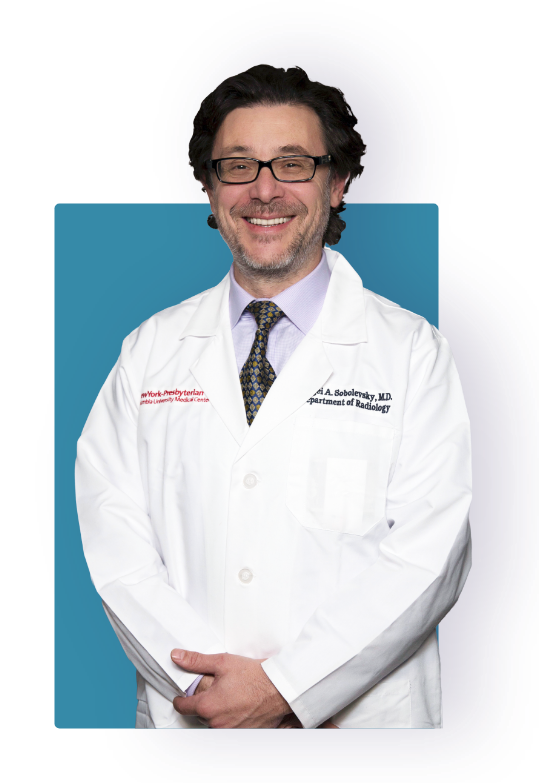The monthly menstrual cycle is never a picnic, but when it starts disrupting your life and causing severe pain and blood loss, that’s usually a sign that something’s wrong. Track the severity of your periods so you can relate to your doctor the level of heavy periods with blood clots. Tracking may also reveal to you that your period is abnormal, prompting you to call the Brooklyn experts at the Downtown Vein & Vascular Center for relief from painful heavy periods. The clinic serves all the neighborhoods of Brooklyn and greater New York City.
What Are Heavy Periods?
The medical term for severe periods is menorrhagia. Unlike average periods, menorrhagia usually is diagnosed when the bleeding is unusually heavy and prolonged. Heavy bleeding can be a common trait of the menstrual cycle in some women. But consistently heavy blood loss that drastically affects your energy and well-being may be considered severe and require treatment.
Severe heavy periods can be a symptom of a variety of medical conditions. Unusual uterine tissue growth, called adenomyosis, and abnormal growths within the reproductive system, such as ovarian cysts or uterine fibroids,are known to intensify period pain and bleeding. Fibroids are the most common cause. Other common associated symptoms of heavy periods due to fibroid bleeding include:
To find the cause of your heavy periods with blood clots, rely on an expert in the field at the Downtown Vein & Vascular Center. The clinic provides exceptional diagnosis and fibroid treatment if you need it.
What Are Symptoms of Abnormally Heavy Periods?
It may be difficult to discern whether your period is naturally on the heavy side or if some underlying condition is causing heavy period bleeding. The main thing to track is whether or not your menstrual cycle begins to stray from its typical pattern, becoming longer and heavier.
Heavier periods cause you to frequently change sanitary products to compensate for the amount of blood loss. Periods are normally uncomfortable for many women, but they shouldn’t be so painful and heavy as to disrupt your everyday routine. Symptoms associated with abnormally heavy periods include:
- Heavy bleeding. Bleeding that requires changing pads or tampons once or more every hour for several consecutive hours. Fibroids also cause bleeding and spotting in between periods.
- Disrupted sleep. When your period is heavy enough to wake you to change period products multiple times a night, that’s a sign of abnormal blood loss. Loss of sleep affects mood and focus throughout the day, setting off a chain of symptoms around fatigue.
- Prolonged period length. Any period that lasts longer than seven days every month is considered a potentially abnormal heavy period.
- Period with heavy blood clots. Periods with blood clots that are larger than a quarter may be a symptom of menorrhagia.

★ ★ ★ ★ ★
Friendly and Professional
Dr. Sobolevsky was both friendly and professional during my vein treatment. He took the time to explain everything to me and answered all of my questions. I would highly recommend him for anyone seeking vein treatment.
What Causes Heavy Period Bleeding?
Heavy bleeding can be the result of a few different conditions. Hormone imbalance or problems with hormone production are common causes of unusually heavy bleeding. During a normal period, estrogen and progesterone levels are balanced to rebuild your uterine wall lining. If there’s a hormonal imbalance, the lining of the uterus may develop into a thicker wall, causing heavy bleeding and larger clots as it sheds.
Other bleeding disorders and otherwise asymptomatic growths can contribute to heavy bleeding during your period. Your NYC doctor understands your symptoms and performs tests through blood work and diagnostic imaging to figure out what’s causing your heavy periods. Possible causes include:
- Hormonal problems. Hormone imbalance, such as an overproduction of estrogen and progesterone, can cause your uterine wall to grow thicker, shedding a larger surface area of lining, leading to heavy bleeding.
- Bleeding disorders. Diseases such as von Willebrand disease can affect menstrual flow when a deficiency or defect in the body prevents blood from clotting.
- Ovarian and uterine growths. Ovarian cysts and fibroids cause a heavy menstrual flow by altering a menstrual cycle’s normal course. Hormone production becomes affected, leading to heavy bleeding and severe cramping.
- Normal uterine tissue stays confined to the layer inside your uterus. When it grows into the muscular wall, though, it can cause heavy bleeding.
- Blood thinners, antidepressants and other medications can affect the severity of your period. Oral contraceptives can also impact how heavy or light your period is.
What Are Treatment Options for Heavy Periods?
The answer depends on the reason for the heavy periods. Your fibroids doctor may have an effective treatment for periods that seem impossible to endure. If you’ve been having issues due to uterine fibroids, the doctor at the Downtown Vein & Vascular offers fibroid removal and fibroids shrinking procedures, such as a uterine fibroid embolization, to treat the cause of your persistent heavy periods.
Your treatment path is defined once the cause is properly diagnosed. Problems with hormone imbalance can sometimes be reversed with medication and lifestyle changes, such as practices to help the body relieve symptoms caused by intense stress. Other treatment options for heavy periods include:
- Non-steroidal anti-inflammatory drugs and pain medication may be prescribed to alleviate inflammation within your reproductive system and decrease pain.
- Uterine fibroid embolization (UFE) This procedure blocks the blood flow to the fibroids, shrinking them in size. Smaller fibroids and clusters of fibroids respond best to UFE, which has a wealth of benefits for women, as well as few risks and a short recovery time. This procedure also treats adenomyosis.
- Fibroid removal. If fibroids remain a problem and can’t be treated by UFE, they may need to be surgically removed. This surgery is known as a myomectomy and involves removing the fibroids without damaging the uterus. While a hysterectomy removes fibroids for good, it also renders you infertile, as it means removing your uterus completely.
Contact the fibroid specialist Sergei Sobolevsky at the Downtown Vein & Vascular Center for a firm diagnosis to find the cause of your heavy period bleeding. And when you need fibroid treatment for heavy periods, you’ll be in the best hands.

I am Dr. Sergei Sobolevsky, a leading specialist in endovascular medicine. Having performed over 25,000 procedures throughout my career, I bring decades of experience in vascular and interventional radiology to my practice. I obtained my Doctor of Medicine (MD) degree from the University of Colorado School of Medicine in 1997 and completed my specialty clinical training in vascular and interventional radiology at Harvard University.
My dedication to excellence in patient care has been recognized through accolades such as being named a Castle Connolly Top Doctor and inclusion in the Top Doctors New York Metro Area lists for 2020, 2021, 2022, and 2023. With licenses in multiple states, I have also shared my expertise through presentations at various institutions in the US and abroad.
More About Dr. SobolevskyDowntown Vein Treatment Center
480 Court Street, Ste 101
Brooklyn, NY 11231
(718) 787-5559


